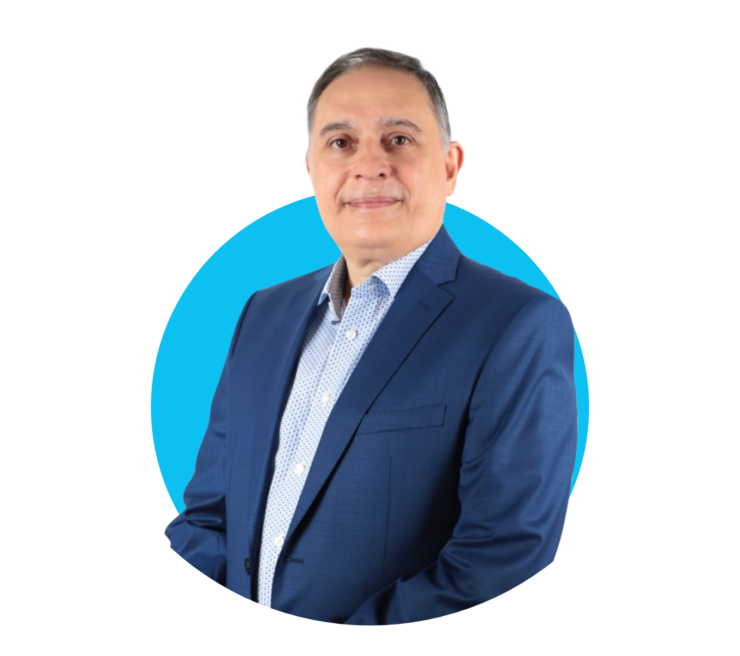Spine Surgery in Dubai, Abu Dhabi and Al Ain
Interbody Fusion – ALIF, PLIF & TLIF
Overview
Back pain is a common problem that can be caused by various factors, such as aging, bad posture, and structural anomalies. It is often accompanied by pain or numbness that travels down arms or legs. Most spine problems can be treated with physical therapy and anti-inflammatory medication. However, chronic spinal pain may necessitate surgical intervention for relief.
The orthopedic department at Novomed offers the most comprehensive spinal deformity services in the UAE and has a world-renowned reputation for its pioneering work and team of specialist spinal surgeons who treat all spine disorders from simple to very complex cases.
What are the most common spine problems?
Compressed nerves in the spine are a common cause of spine problems and can occur for various reasons, such as:
– Herniated disc (disks that have bulged or ruptured)
– Spinal Osteoarthritis (a degenerative joint disorder that causes the deterioration of the cartilages between the discs in the lower back, resulting in pain, stiffness, and restricted movement).
– Spinal Stenosis (a narrowing of the spinal column that puts pressure on the spinal cord and nerves)
– Spondylolisthesis (when one of the vertebrae, especially at the lower back, slips forward and out of place, which can cause back and leg pain)
– Spinal deformities such as scoliosis (a condition in which the spine twists and curves sideways)
– Spinal tumors (a growth that forms in your spinal canal or among your spine’s bones)
What to expect before spine surgery?
During your consultation, our orthopedic doctor will review your medical history, perform a physical examination, and request tests such as X-rays, MRIs, or CT scans to determine the cause and extent of spinal pain and damage.
Once the doctor decides that surgery is required, they will provide you with pre-surgery instructions to follow in order to avoid complications and ensure a smooth recovery.
What are the different types of spine surgery?
Almost all back surgeries are done under general anesthesia. Our surgeon will determine which procedure is right for you depending on the cause of your spinal pain and the severity of your condition. In some cases, more than one spine surgery can be performed simultaneously.
The main types of spine surgery include:
- Minimally-invasive spine procedures
The minimally invasive surgical procedure offers access to the spine through small incisions that cause minimum injury to the tissue being treated and the surrounding tissue. Minimally invasive spine procedures provide a short operative and recovery period.
- Vertebroplasty
This procedure involves injecting bone cement into the fractured spine to strengthen the bone and restore movement. You will need to rest on your back for an hour while the cement hardens. This technique is used to treat osteoporosis-related compression fractures of the vertebrae.
- Lumbar laminectomy / Lumbar decompression surgery
This procedure involves the removal of part or all of the spinal bone to reduce nerve pressure and expand space within the spinal canal. It can be performed to treat a herniated disk or spinal stenosis, as well as to remove a tumor from the spine.
- Spinal fusion
During spinal fusion, the surgeon joins two or more bones in the spine together with small screws and rods to prevent them from moving against each other and causing pain.
- Discectomy
This procedure includes removing all or part of the herniated disk to reduce nerve discomfort and inflammation. The recovery time following a discectomy is usually short. You may still have pain or numbness along the course of the nerve that was under pressure, but these symptoms should subside.
- Lumbar disk replacement
This procedure involves replacing the injured disk in the lower part of your spine with an artificial one made of synthetic materials to restore height and movement between the vertebrae. It is considered an alternative to spinal fusion.
What to expect after spine surgery?
After spine surgery, you may experience discomfort or weakness following surgery, but symptoms should improve significantly after one or two weeks. You should get a lot of rest and avoid any activity that puts pressure on the spine until you fully recover, which can take anywhere from 4 months to a year.
The length of your recovery is determined by the severity of your condition and the procedure you underwent. For most procedures, you will probably need to stay at the hospital for observation for a couple of days after the procedure. For temporary relief, our doctor can prescribe over-the-counter pain medicines. However, surgeries such as laminectomy and fusion require a longer recovery period.
Physiotherapy after surgery can help improve your mobility and allow faster recovery. Our doctor will work with you to develop a recovery plan to help you achieve the best outcome and improve your quality of life.
Schedule your appointment at Novomed today!
If you are experiencing back pain and stiffness or numbness in your limbs, make an appointment with one of our expert orthopedic doctors in Dubai or Al Ain to learn more about your condition and treatment options.
To book an appointment or for more information about Spine Surgeries, call us toll-free on 800 (NOVO) 6686 or click the live chat icon at the bottom of the screen.


